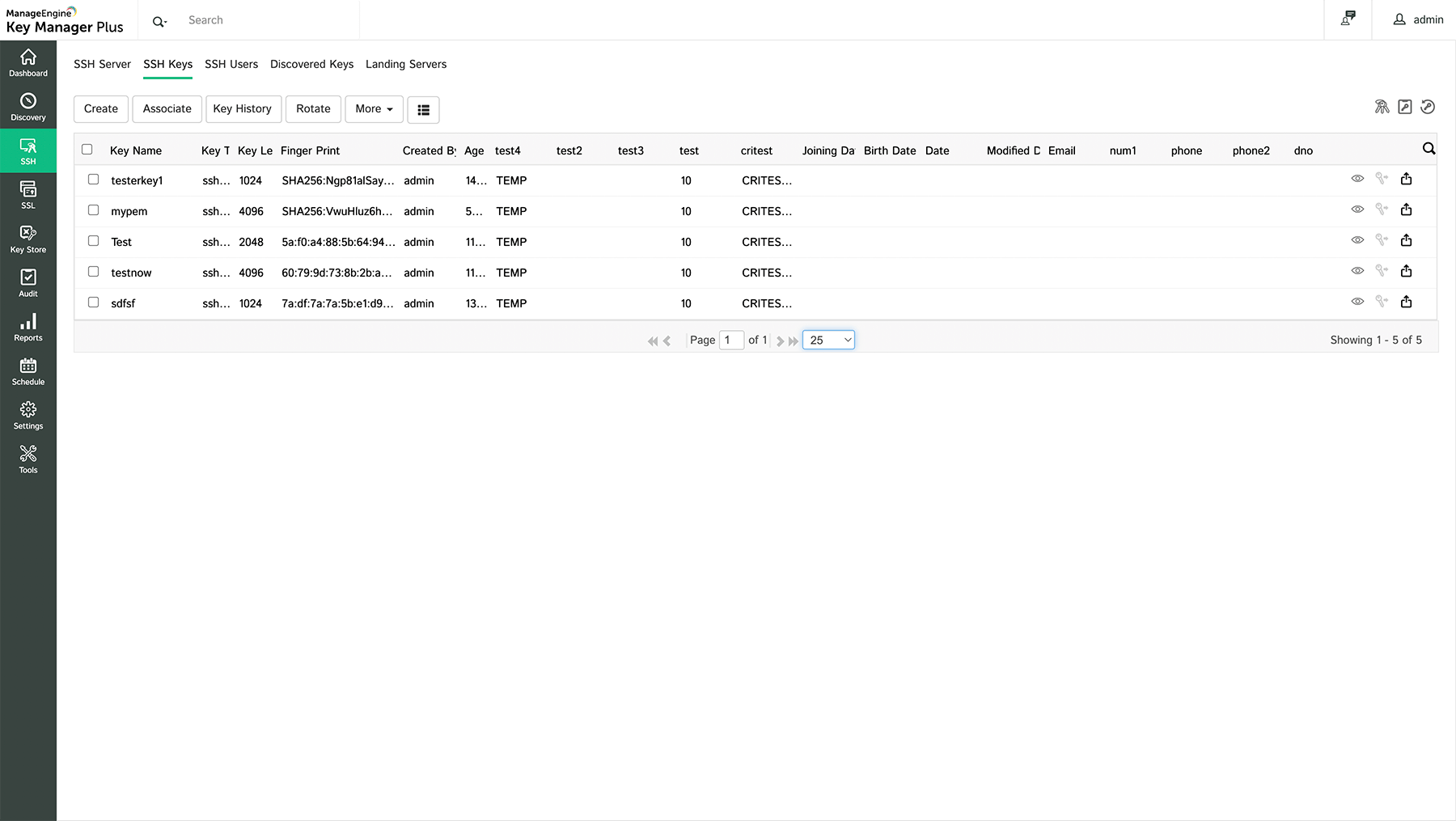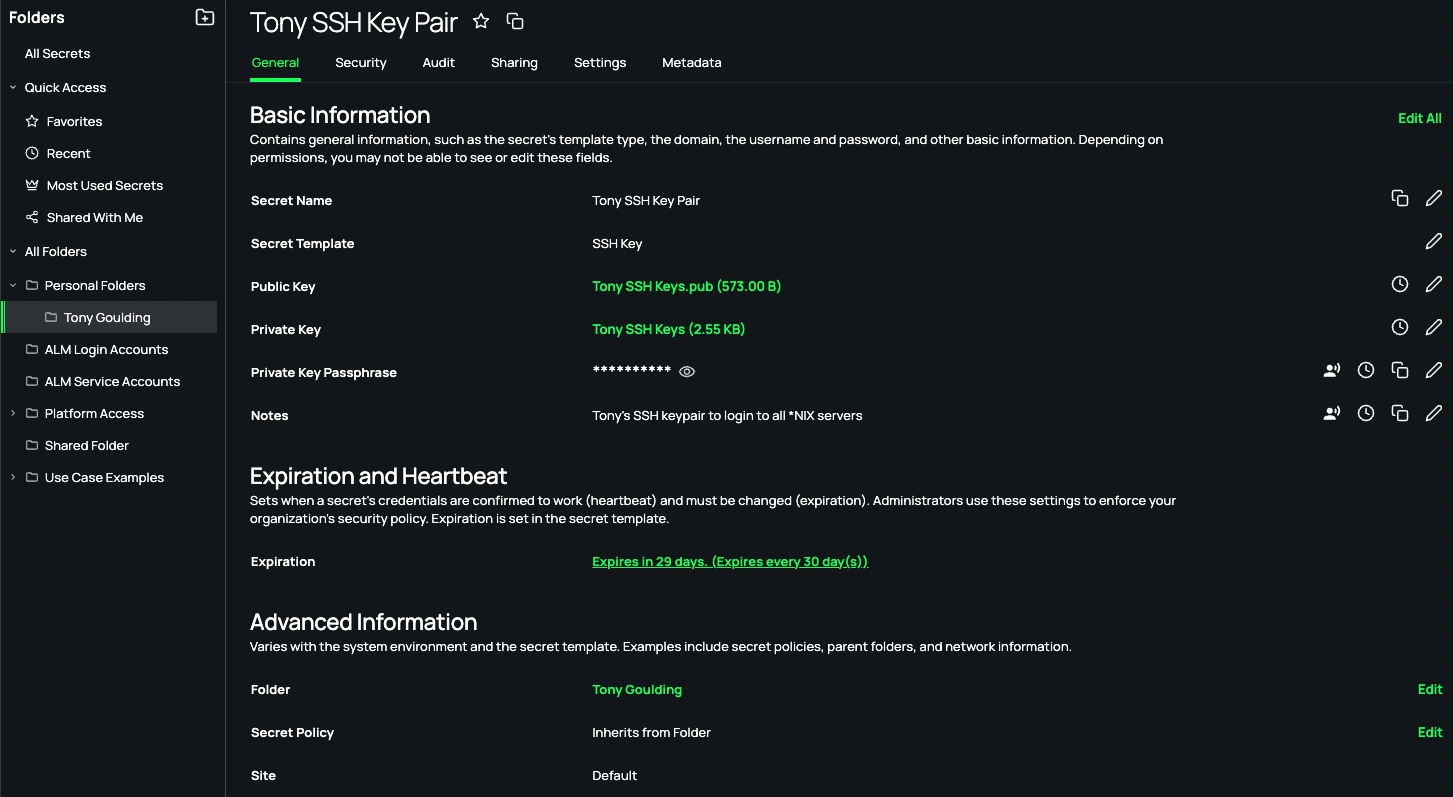RemoteIoT SSH Key Management: Secure Access In The IoT World
In the intricate dance of the Internet of Things (IoT), where devices connect and communicate, can we truly secure remote access without mastering the art of RemoteIoT SSH key management? Yes, proper SSH key management is not merely a best practice; it is the bedrock upon which secure and reliable remote access to IoT devices is built.
The modern world is characterized by an ever-expanding web of interconnected devices, collectively known as the Internet of Things (IoT). From smart home appliances to industrial sensors, these devices generate and exchange vast amounts of data. This interconnectivity, while offering unprecedented convenience and efficiency, also introduces significant security challenges. A critical element in addressing these challenges is the robust management of Secure Shell (SSH) keys, especially in the context of remote IoT environments.
For anyone involved in the design, deployment, or maintenance of IoT systems whether you are a seasoned system administrator, a cutting-edge developer, or an IT professional navigating the complexities of the digital landscape understanding the nuances of SSH key management is no longer optional; it is essential. This is your roadmap to understanding how to implement effective security protocols.
- Celine Dions Funeral Tributes Legacy Amp How Her Music Lives On
- Beyond The Screen Secrets Of Hollywood Actors Revealed
Table of Contents
- Introduction to RemoteIoT SSH Key Management
- Why SSH Key Management Matters for RemoteIoT
- Understanding the Basics of SSH Keys
- Security Benefits of Proper SSH Key Management
- Best Practices for RemoteIoT SSH Key Management
- Tools for Managing SSH Keys in RemoteIoT
- Implementing SSH Key Management in RemoteIoT
- Common Risks and Challenges in SSH Key Management
- Automation in SSH Key Management for RemoteIoT
- The Future of RemoteIoT SSH Key Management
- Conclusion
Introduction to RemoteIoT SSH Key Management
Within the operational landscape of remote IoT, SSH key management stands as a foundational pillar for secure access. SSH keys serve as the primary mechanism for authenticating users and devices, offering a significantly higher level of security compared to traditional password-based authentication methods. This difference is particularly crucial when dealing with devices in remote locations where physical access is limited or impossible.
IoT Security and SSH Keys
The very nature of IoT devices often dictates their deployment in remote and physically inaccessible locations. This makes the need for robust remote access solutions paramount. SSH keys provide a secure and reliable means to authenticate and authorize access, thereby drastically reducing the risk of unauthorized intrusions. They act as digital gatekeepers, ensuring that only authorized personnel and devices can interact with the system.
Why Is SSH Key Management Important?
The absence of proper SSH key management can transform these seemingly secure keys into significant liabilities. Misconfigured or unmanaged keys can easily lead to security breaches, exposing sensitive data and disrupting critical operations. Effective SSH key management is, therefore, not just a best practice but a necessity for ensuring that your IoT infrastructure remains accessible only to those explicitly authorized to do so.
- Temporary Replacement 3 Your Guide To Business Continuity
- Chickfila Food Truck Menu Your Guide To Chicken On Wheels
Why SSH Key Management Matters for RemoteIoT
In the world of remote IoT, managing SSH keys goes beyond merely securing access; it is about maintaining the very operational integrity of your systems. The inherent nature of an IoT ecosystem, where devices constantly communicate and exchange data, makes secure authentication a non-negotiable requirement. Each interaction, each data exchange, relies on the trustworthiness of the connection, and SSH keys are the primary tools for ensuring this trust.
Benefits of SSH Key Management
- Enhanced Security: Mitigates the risk of unauthorized access, safeguarding your data and systems.
- Scalability: Provides the capability to efficiently manage keys across a multitude of devices and users, accommodating the growth of your IoT infrastructure.
- Compliance: Enables adherence to industry standards and regulatory requirements, ensuring that your operations align with best practices and legal mandates.
Bio-data of SSH key Management Experts
As there is no specific person in the topic, therefore, information about topic is created.
| Category | Information |
|---|---|
| Definition | RemoteIoT SSH key management refers to the secure and systematic handling of Secure Shell (SSH) keys within an Internet of Things (IoT) environment where devices are accessed remotely. This involves generating, distributing, storing, rotating, and revoking SSH keys to control access to IoT devices. |
| Importance | Critical for securing IoT devices from unauthorized access, maintaining data integrity, and ensuring operational reliability. It protects against various threats such as brute-force attacks, key leakage, and unauthorized access attempts. |
| Key Components |
|
| Best Practices |
|
| Tools |
|
| Challenges |
|
| Future Trends |
|
| Reference Website | OpenSSH Documentation |
Please note that this table has been formatted for easy integration into a WordPress environment. You can copy and paste this HTML code directly into a WordPress page or post using the HTML or Text editor.
Security Benefits of Proper SSH Key Management
The effective management of SSH keys significantly bolsters the security posture of your RemoteIoT infrastructure. By adhering to best practices, you can erect formidable defenses against a range of potential threats, safeguarding both data and operational continuity.
Common Security Threats
- Brute Force Attacks: These involve unauthorized attempts to guess private keys through trial and error, a common method of gaining unauthorized access.
- Key Leakage: This refers to the accidental exposure of private keys, which can occur through various means, leading to significant security compromises.
- Unauthorized Access: This involves unauthorized individuals gaining access to systems and data through compromised credentials or vulnerabilities.
Best Practices for RemoteIoT SSH Key Management
The adoption of best practices is paramount to maintaining secure SSH key management within your RemoteIoT environment. By implementing these recommendations, you can fortify your defenses and minimize your attack surface.
Key Management Practices
- Regularly Rotate Keys: Updating keys periodically, such as every 90 days or more frequently based on risk assessment, is a critical step to minimize the potential impact of key compromise.
- Limit Access: Restricting key usage to only authorized personnel and devices is essential to reduce the risk of misuse and maintain control over your infrastructure.
- Monitor Usage: Continuously tracking key usage and scrutinizing access logs is essential to detect suspicious activities and identify potential security incidents promptly.
Tools for Managing SSH Keys in RemoteIoT
A variety of tools are available to streamline SSH key management in a RemoteIoT setup. These tools provide features that range from key generation and rotation to robust monitoring, simplifying the process and enhancing security.
Popular SSH Key Management Tools
- SSH Key Management Systems (SKMS): These are enterprise-grade solutions designed for managing keys at scale, offering centralized control and advanced features.
- OpenSSH: A widely used, open-source tool, OpenSSH provides a robust and versatile platform for SSH key management.
- HashiCorp Vault: A secure and flexible solution for storing and managing SSH keys, providing a centralized and auditable repository.
Implementing SSH Key Management in RemoteIoT
Implementing SSH key management in a RemoteIoT environment is a multi-step process. From the initial key generation to secure deployment, each stage demands careful planning and thorough execution. Each phase is critical and has a direct impact on the overall security posture.
Steps for Implementation
- Key Generation: Create strong, unique key pairs using cryptographic best practices, such as RSA with a minimum of 2048 bits or ECDSA.
- Deployment: Securely distribute public keys to your devices, employing methods like pre-installation or automated configuration management tools.
- Monitoring: Continuously monitor key usage and access, employing logging and alerting mechanisms to detect and respond to any suspicious activity.
Common Risks and Challenges in SSH Key Management
Despite the undeniable benefits, SSH key management is not without its challenges. Understanding these risks is the first step in developing strategies to mitigate them.
Key Management Challenges
- Key Sprawl: Managing a large number of keys across numerous devices can quickly become complex, necessitating robust solutions to maintain control.
- Outdated Keys: Failing to update or rotate keys regularly can leave your systems vulnerable to attacks, highlighting the need for proactive key management.
- Insufficient Monitoring: A lack of effective oversight over key usage can lead to undetected breaches and a delayed response to security incidents.
Automation in SSH Key Management for RemoteIoT
Automation is a game-changer in the realm of SSH key management for RemoteIoT. By automating key generation, rotation, and monitoring, you can significantly diminish human error and enhance overall security.
Automation Tools
- Ansible: Automate key deployment and management, streamlining the process and reducing manual effort.
- Puppet: Manage SSH keys across multiple devices in a consistent and repeatable manner, improving efficiency and compliance.
- Chef: Streamline key management processes with infrastructure-as-code principles, enabling greater control and scalability.
The Future of RemoteIoT SSH Key Management
As the IoT landscape continues to evolve at an unprecedented pace, the methods for managing SSH keys will similarly undergo transformation. Emerging technologies and ongoing advancements in the field of cryptography will undoubtedly play a critical role in shaping the future of secure key management.
Emerging Technologies
- Quantum Cryptography: This shows promising advancements in secure key exchange, potentially offering a significant leap forward in the resilience of key management systems.
- AI and Machine Learning: These technologies are being increasingly utilized to enhance monitoring and threat detection, enabling proactive identification and response to security incidents.
In the ever-changing world of IoT, the management of SSH keys is not a static process. It is a continuous journey that requires vigilance, adaptability, and a commitment to staying ahead of the curve.
The integration of quantum cryptography and AI/ML, will revolutionize the way we approach the security of remote access in IoT environments. The future holds the promise of more robust, efficient, and intelligent solutions that will fortify the security posture of IoT systems.
Reference:
- OpenSSH Documentation: https://www.openssh.com/
- HashiCorp Vault: https://www.vaultproject.io/
- NIST Guidelines for SSH Key Management: https://nvlpubs.nist.gov/


Detail Author:
- Name : Macie Balistreri
- Username : ccorwin
- Email : hahn.dallas@yahoo.com
- Birthdate : 1976-07-06
- Address : 2455 Pfeffer Roads South Quinn, SD 26019-5921
- Phone : (435) 875-9865
- Company : Wunsch, Mitchell and Schimmel
- Job : Cooling and Freezing Equipment Operator
- Bio : Et necessitatibus nihil aliquid repellat perferendis qui culpa. Harum excepturi in ea nostrum aut non unde. Nam officiis delectus aliquam ducimus quod exercitationem sint.
Socials
facebook:
- url : https://facebook.com/jaeden_maggio
- username : jaeden_maggio
- bio : Fuga occaecati quo tempore ullam iure omnis sit.
- followers : 216
- following : 946
twitter:
- url : https://twitter.com/jaeden_real
- username : jaeden_real
- bio : Est consectetur enim quia accusamus voluptates molestiae. Ut est delectus ut eos molestias aut autem.
- followers : 1522
- following : 1167